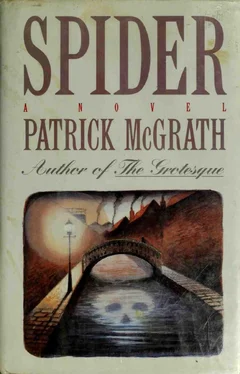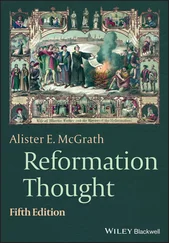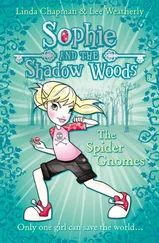But gas—why gas? I was at a loss to know what to make of it. Was it connected to the gasworks on the far side of the canal? They don’t have gasworks in Canada, so when I’d looked at the three great domes behind the factory it was the first sight I’d had of such things in two decades, though it’s the structural character that disturbs me, nothing more, the uprights comprise thousands of steel modules, and each of the four faces of each module is a frame with diagonal crossstruts; and stacked as they are to a great height, they repeat this crisscross pattern almost to infinity, and if I look at them too long I become absorbed in the pattern and the effect is horribly vertiginous—this is foolish, I know, but the sensation is real nonetheless. Is this why I suffered those bizarre sensations last night? I failed to find a connection.
I walked home slowly through the wet empty streets. It had begun to rain earlier in the afternoon (I had not gone back to the house for lunch), and the drizzle had persisted for several hours now. I was soaked through, but I didn’t care, it felt cleansing, and after the peculiarly unwholesome events of the night I welcomed this. On I went as the damp day thickened to dusk, past a long series of grimy brick arches, a smoke-blackened viaduct supporting the railway lines that slice across the East End streets, many of the arches bricked up now, or sealed off with sheets of corrugated tin behind which scrapyards and garages did their furtive business. From one of them a humped man in a shabby wheelchair suddenly emerged then went lurching round the corner, and I followed him under the arch, and coming out on the other side I saw, again, to the east, the gasworks, the rusty bulk of its trio of domes stained and streaked a dark reddish-brown in the drizzle.
I crept back into the house and went straight up to my room, where I intended to smoke, for I had smoked very little all day. I stood by my table as I groped for tobacco and papers, and gazed out of the window at the shabby square below, in the center of which stands a little park with spiked iron railings, a few bushes, a tree or two, a small pond, and some grass where the children play. It was almost dark. At the gate of the park, padlocked since 5:30 p.m., stood a single lamppost, a black iron stem rising from a fluted base, a short knobbed crosspiece near the top, and a glass box that housed an orb of light that spread a hazy, yellowy-gold glow through which the drizzle came drifting like flecks, like hints, or suggestions. My clever fingers plucked and spread tobacco in my paper, then I rolled the thing and licked the edge. I have a squat tin lighter with a hinged cap; with this I lit the cigarette, and then I smoked. Night fell, and the yellowy haze of the streetlamp strengthened and brightened in the blackening air, and still the rain came misting down through its corona on the slant, like so many memories drifting across some lost and benighted mind. I seated myself at the table and reached down for my book.
The following Sunday had dawned bright and clear, and before eight I heard my father in the kitchen downstairs, filling the kettle and turning on the gas. I heard the clatter of the big black skillet as he set it on the stove, I heard the bread tin being opened for the heel and crust of yesterday’s loaf. Then silence—the smell of bacon fat drifting up the stairs— he is sitting at the table drinking his tea from a chipped white enamel mug and dipping the bread into the hot fat. The scrape of chair legs—he is lacing up his boots—then out the back door, and from my bedroom window I watched him go down the yard to his bicycle.
It must have been some time that afternoon that Hilda Wilkinson crossed the railway lines by the bridge off Omdurman Close and made her way along the path to the allotments. My father was in his shed sorting through a basket of potatoes he had dug that morning. That shed—what a shudder it still arouses in me, the very thought of the place! It was very dark inside, and it smelled strongly of earth. There were always piles of boxes and sacks and baskets in there, tools of course, spades and rakes and hoes and so on, seed packets in bundles tied with string on the shelves, and up in the shadows, draped between the rafters, the cobwebs. Sometimes I would close the door behind me and watch them for hours, and in the shed’s deep gloom—it had no window, and what light there was slipped in through chinks and cracks— I would at last see a great web tremble as its maker scuttled rapidly along a fine gossamer trapline for its meal. At other times I would fling open the door and let daylight for a moment flood the shed, and then the webs would shimmer in the sunshine as I gazed entranced at the filmy delicacy and perfection of their construction. But I never had enough time, somehow, to examine them properly in the light. There was also a battered, leaking, horsehair armchair in there, and beside it a wooden box on which a candle was stuck in a puddle of old wax; and lastly—and where this came from I’ve not the faintest idea—on a shelf on the back wall there was a stuffed ferret in a dusty glass case. It was snarling, exposing its little white pointed teeth, one paw raised, its sleek lithe body frozen in a posture of sudden alarm, and though one of its glass eyeballs was missing, and stuffing oozed out of the socket, the other glittered sharply in the shed’s gloom and always upset me if I looked at it too long, malignant creature it was.
My father, as I say, was selecting potatoes to bring back to Kitchener Street, and he didn’t hear Hilda come up the path. It was a bright day, that Sunday, but cold. Then he looked up sharply and saw her framed in the doorway with the light streaming in all around her, hair disheveled, breast heaving from the exertion. He stood there, bent over his basket in the gloom as he turned guiltily toward this woman with whom, by this time, he had more than once imagined copulating. In a leisurely manner she surveyed the inside of the shed. Slowly my father straightened up, unconscious that he had a potato in each hand though clutching them so tightly that his knuckles turned white. Hilda’s hands were deep in the pockets of her big fur. “Mister Cleg?” she said hoarsely, lifting her chin and her eyebrows in a sort of interrogatory gesture.
“Yes,” said my father, at last finding his voice.
“Horace Cleg?” she said. “The plumber?”
“That’s right,” said my father, dropping his potatoes into the basket. He was recovering his poise now.
“I’m having a spot of trouble with my pipes,” said Hilda. “I was told you could help me.”
My father’s relationship with Hilda Wilkinson properly began when he went to work on her pipes. She had not lingered long on his allotment; an appointment had been made, the pair of them behaving in an adult, businesslike manner throughout, and then, without a single bubble of hoarse laughter, with no saucy lift of that big pink chin, off she’d gone, swaying and yawing to right and left as she picked her way carefully down the garden path. My father had watched her from the door of the shed, then gone back inside and lowered himself into the armchair. Picking a potato from the basket beside him, he turned it slowly in his fingers, reflecting on what had just occurred.
Hilda lived over a tobacconist’s shop on Spleen Street, which runs under the gasworks on the side farthest from the canal; she shared a flat with a woman called Nora Temple, the woman in the hat my father had noticed with her in the Dog and Beggar. A few days later then we find him leaning his bicycle against the lamppost outside the tobacconist’s. Glancing up at the looming domes that cast a small sea of shadow on the shops and houses of Spleen Street, he entered the tobacconist’s and went through the back and up a dark flight of steep narrow stairs. It was when he was halfway up those stairs that a peculiar thing happened. From above, the sudden sound of heavy footsteps descending; then a fat man in a thick black overcoat with the collar turned up came clattering down and without a word pushed by my father, forcing him against the banister and almost knocking him back down the stairs. A moment later he could be heard stamping out through the shop and into the street, the little bell on the tobacconist’s door tinkling feebly in his wake. My father was astonished and annoyed; frowning, he resumed the climb. At the sound of his knock the door of the flat was opened a crack, and through the crack peered Nora, who was hostile and suspicious until he said he was the plumber. There would then have been some difficulty about getting the door open, as Nora wouldn’t want the cats to get out, for they had dozens of the creatures, mangy things always yowling and shedding hairs. So my father edged in sideways through the crack and followed Nora as she clumped off on heavy shoes down a short dark passage far more constricted than it need have been on account of the bulky coats hanging from hooks and pegs along the walls, his progress further hampered by the cats swarming about his ankles. At the end of the passage Nora threw open the door of the lavatory. “In here,” she said. But before my father could go in, a familiar voice spoke: “That the plumber?”
Читать дальше












